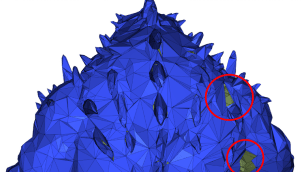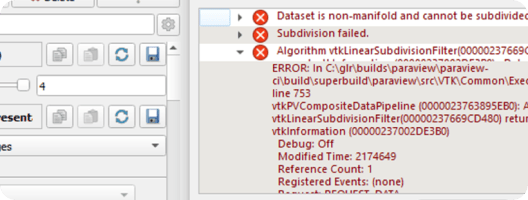VTK alternative comparison
When it comes to scientific data manipulation and visualization, the Visualization Toolkit (VTK) stands out as a powerful open-source solution. However, in some cases, developers and researchers may seek alternatives that better suit their specific needs. In this article, we delve into a detailed comparison between VTK and MeshLib 3D geometry libraries, exploring their performance across various test cases to help you make an informed decision.
What is VTK?
The Visualization Toolkit (VTK) is a widely-used open-source software for manipulating and displaying scientific data. With advanced tools for 3D rendering, interactive visualization, and plotting, VTK is utilized worldwide in commercial applications, research, and development.
What is MeshLib?
MeshLib is an open-source library renowned for its efficiency and versatility in 3D geometry processing. Offering state-of-the-art tools for mesh manipulation and rendering, MeshLib is a preferred choice for developers seeking a reliable and robust solution for their projects.
Comparing VTK vs MeshLib on Test Cases
Decimation Performance Case
This case evaluates the performance of the libraries in handling complex meshes with a high level of detail. Decimation is a common operation used to reduce the complexity of meshes while preserving important features. By comparing how each library handles decimation, we can assess their efficiency and accuracy in processing large and intricate meshes.
Original

Mesh 1,100,000 triangles
VTK

Result – 11K Mesh with Big Holes
Decimation Time – 11 seconds
MeshLib

Result – Uniform mesh
Decimation time – 4 seconds with sequental algoritm or 1 second with parallel algoritm
Decimation Quality
Decimation quality is crucial in many applications, as it determines the visual fidelity of the resulting mesh. By comparing the quality of decimated meshes produced by each library, we can evaluate their ability to maintain geometric accuracy and minimize distortion during mesh simplification.
VTK

Many near-degenerate triangles
MeshLib

Result – Uniform mesh
3D Boolean Operations
Boolean operations are fundamental in 3D geometry processing, used for tasks such as mesh intersection, union, and subtraction. This case assesses the libraries' capabilities in performing boolean operations on meshes of varying complexities and configurations, providing insights into their robustness and reliability in handling geometric computations.
VTK

Library contains an implementation that ”relies on the joputs having no co-planar, overlapping cells».
MeshLib
Fast & Reliable
Supports various degenerations, and can even produce a valid result if two meshes coincide in many or all triangles. Can perform Boolean operations for moderate-size meshes in real time.
Subdivision Case
Mesh subdivision is a common operation used to refine meshes and increase their level of detail. This case examines how each library handles mesh subdivision, particularly focusing on reliability and performance under different subdivision levels. By comparing the results, we can identify any limitations or issues with the libraries' subdivision algorithms.
VTK

Reliability is a concern
While it mav function adequately with minimal parameters, it tends to encounter - issues when subjected to higher levels of subdivision, often resulting in _ambiguous_error messages.
MeshLib

Reliable and open source
You can effortlessly subdivide arbitrary meshes without any constraints.
Huge Files Support
In this test, we imported a binary STL file sized at 5 GB, comprising 105 million triangles. Such substantial mesh sizes can commonly arise during the conversion of volumetric data.
VTK
Opening in ParaView 5.10.1 (based on
QT+VTK) took 10 minutes
MeshLib
Opening in MeshInspector (based on MeshLib) took 2 minutes.
Conclusion
While VTK offers a comprehensive set of tools for scientific data visualization, MeshLib emerges as a compelling alternative, particularly in scenarios requiring fast and reliable mesh processing. With its superior performance in decimation, boolean operations, subdivision, and handling of huge files, MeshLib proves to be a valuable addition to the toolkit of developers and researchers in need of efficient 3D geometry processing capabilities.
To download the comparison data for MeshLib and VTK, please visit the following link.

